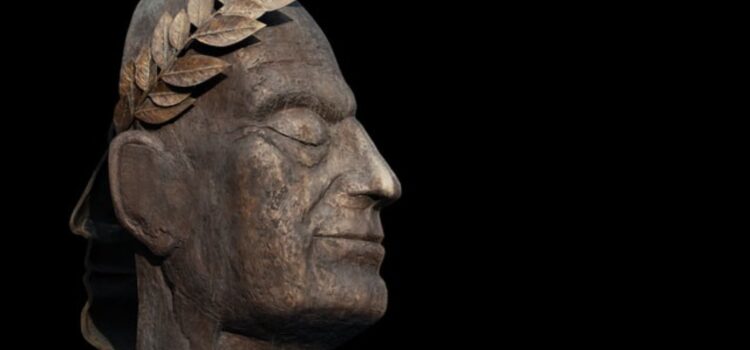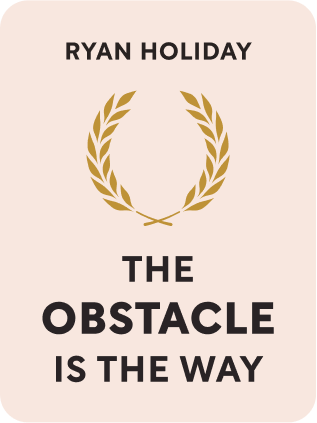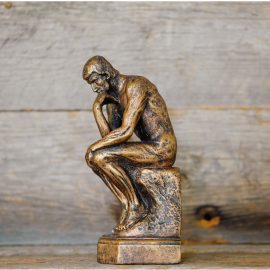

This article is an excerpt from the Shortform book guide to "The Obstacle Is The Way" by Ryan Holiday. Shortform has the world's best summaries and analyses of books you should be reading.
Like this article? Sign up for a free trial here .
Who said “What stands in the way becomes the way”? Do you agree with the statement? Why or why not? What do you think it means?
The quote “What stands in the way becomes the way” is attributed to Roman Emperor and a die-hard Stoic Marcus Aurelius. It might sound paradoxical when you first hear it, but as you think about it more and more, the meaning will unfold before you; and it’s quite profound.
Here are the meaning and a little backstory of Marcus Aurelius’ timeless quote “What stands in the way becomes the way.”
Marcus Aurelius: What Stands in the Way Becomes the Way
“What stands in the way becomes the way. The impediment to action advances action.”
Roman Emperor Marcus Aurelius, who ruled the Roman Empire for 19 years, wrote these words over 1,800 years ago, communicating the idea that obstacles are a good thing because of the opportunities they create—and because they make you stronger, wiser and, ultimately, the best you can be. Not only did the emperor write the words, but he also embodied the very wisdom contained in them.
Near the end of his reign, when Marcus Aurelius was ill, he learned that an old friend and general, Avidius Cassius, planned to take advantage of his weakness and seize the throne.
Marcus could have immediately crushed Cassius and the rebellion, but he saw opportunity in the obstacle. Marcus sent troops to defeat the rebels, but also ordered that Cassius be captured, rather than killed, so Marcus could forgive him and demonstrate to the world that civil wars could be settled without a bloodbath. The obstacle (Cassius) would become the way to do this.
However, events intervened—an assassin killed Cassius, and Marcus lost the opportunity to forgive the man who betrayed him. But he saw still another opportunity: to forgive more broadly, including everyone else involved in the plot against him. Again, the obstacle became the way.
Seeing Obstacles as the Way: Gandhi and Alexander the Great
Gandhi turned the military strength of the British rulers of India against them by using an opposite tactic: nonviolent resistance.
By leading thousands on a march to the sea to collect salt (this wasn’t allowed because the British taxed and sold all available salt for profit), Gandhi nonviolently defied British authority. While the British arrested Gandhi and thousands of others, millions all over the country began demonstrating, which sparked an international outcry.
The British couldn’t act militarily against the unarmed, nonviolent masses. They granted Gandhi a role in negotiating India’s future and eventually granted the country independence.
Other examples of turning obstacles against themselves include:
- Martin Luther King Jr. turned back unjust laws and physical force with its opposite, nonviolent resistance.
- The Russians defeated Napoleon and the Nazis by allowing the enemy forces to cross into Russia, where fierce winter weather soon decimated the invaders.
- Alexander the Great tamed the mighty horse Bucephalus by simply mounting and hanging on until the horse tired of fighting.

———End of Preview———
Like what you just read? Read the rest of the world's best book summary and analysis of Ryan Holiday's "The Obstacle Is The Way" at Shortform .
Here's what you'll find in our full The Obstacle Is The Way summary :
- Why you should think of any obstacles as opportunities
- How Stoicism can show you the way to overcome challenges
- How Theodore Roosevelt's struggle with asthma prepared him for future struggles






